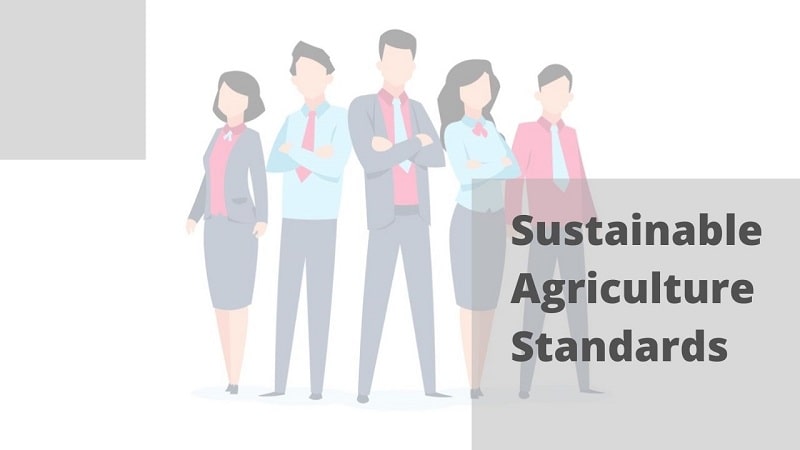We SAS – Sustainable Agriculture Standards started our journey in the year 2017 with a mission to define standard guidelines and practices for sustainable farming. The ultimate goal of SAS is to help farmers and producers to produce pesticide chemical-free agriculture products at every step of the process. The guideline defined by SAS is the result of more than 10 years of research and study conducted in sustainable cultivation and processing fields across geography around the world, hence one can assume that these standards are the crux of all well-defined and proven principles followed globally in the sustainable agriculture and warehousing sector.

The SAS is managed and operated by experts and professionals working in sustainable agriculture certification for more than 15 years, actively participating in audit and compliance defining roles for more than 1000 farms. We at SAS believe in the “ Zero Tolerance against quality and sustainability compromises” philosophy.
As accreditation body these are our duties
- Development of a global sustainable production & processing standard.
- Application processing and compliance setup for certification.
- Ensure that standards are followed at all levels.
- With our SAS academy initiative we have trained thousands of farmers globally.
- Carbon offset linking with every project give add-on values and the opportunity to earn carbon credit
- Support certification body with a team of highly qualified professionals.
- Monitor end-to-end process of certification.
- Provide effectively IT-enabled tools for audit and traceability.
- With our blockchain-based IT solution we are able to capture traceability with transparency
Why SAS ?
By the number of estimates, the world’s population will cross the mark of 9 billion by the year 2050, and food demand will increase by 70 percent. And thus some serious actions are required to take in the agriculture sector to meet the increased demand.
Earth is already suffering from drought and challenges in demand for energy and the shift from conventional agriculture to sustainable agriculture can be proven can be very promising.

We believe that chemical-free food products should be the fundamental right for every citizen living on this planet, as due to increase demand in supply and food requirements growers and producers are inclined towards the use of pesticides sometimes excessive as well. However, we strongly believe that production and demand can be addressed by the use of bio fertilizers and sustainable methods, if followed by strict rules and controlled processes. The SAS (Sustainable Agriculture Standards) ensure that the product is chemical-free and produced in environmental-friendly ways. SAS ensures that there should not be full or partial use of synthetic molecules in agriculture commodity production and processing. The entire process can be traceable by the state of art monitoring and traceability systems. Promoting Nonchemical agents such as insect predators, mating disruption, and traps are used to protect crops from pests and disease. Weeds are managed through crop rotation, tillage, hand weeding, cover crops, mulches, flame weeding, and other management methods.